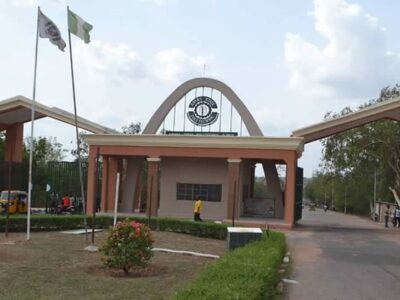The Federal Government has reacted to the analysis of the International Monetary Fund (IMF), which states in its 2021 Article IV, that the government could spend up to 92.6 percent of its revenue on debt servicing this year, replying that the IMF failed to consider Nigeria’s challenges.
It will be recalled that in a similar fashion, Agusto and Co., a Pan-African credit rating agency had seconded the position of the IMF.
The Debt Management Office (DMO) in a statement released over the weekend, explained that while Nigeria’s debt and debt service levels may have grown over the years, arguing that the IMF and Agusto reports failed to consider the challenges experienced by Nigeria in recent times, such as two recessions, sharp drop in revenues and security challenges.
The DMO was also worried about the analysis that did not pay much attention to the improvements in infrastructure, which have been achieved through borrowing, as well as, the strong measures by the government to earn more revenues.

The Office emphasised the fact that the government was already implementing policies towards increasing revenues and developing infrastructure through Public Private Partnership arrangements, both of which will improve debt sustainability.
Also, it pointed out that the Federal Government has active and regular engagements with the IMF on borrowing and debt management.
The statement reads: “The Debt Management Office (DMO) in a comment on the recent Reports by the International Monetary Fund (IMF) and Agusto and Co. on Nigeria’s Debt Service stated that Debt levels and Debt Service levels have grown over the years.
“However, while this may be the case, these Reports have failed to consider the challenges experienced by Nigeria in recent times such as two recessions, sharp drop in Revenues and security challenges.
“Even more, the analysis do not acknowledge the improvements in infrastructure which have been achieved through borrowing, as well as, the strong measures by the Government to grow Revenues”
The DMO re-iterated the fact that the Government is already implementing policies towards increasing revenues and developing infrastructure through Public Private Partnership arrangements both of which will improve debt sustainability.
“The DMO also noted that the Government has active and regular engagements with the IMF on borrowing and debt management.”
The IMF’s 2021 Article IV Consultation with Nigeria had stated in part that “despite the recovery in oil prices, the general government fiscal deficit is projected to widen in 2021 to 5.9 percent of GDP, reflecting implicit fuel subsidies and higher security spending. Moreover, the consolidated government revenue-to-GDP ratio at 7.5 percent remains among the lowest in the world.”
On the outlook, the Fund noted that Nigeria “faces balanced risks”, and added: “On the downside, low vaccination rates expose Nigeria to future pandemic waves and new variants, including the ongoing Omicron variant, while higher debt service to government revenues (through higher US interest rates and/or increased borrowing) pose risks for fiscal sustainability.”
It could be recalled that as of the end of September 2021, the debt-servicing-to-revenue ratio stood at 76 percent, signifying that 76 kobo out of every N1 earned by the Federal Government was spent on payment of interest on debts.
The IMF estimates the debt-servicing-to-consolidated revenue (total revenues of the government and its agencies) for 2021 and 2022 at 29 and 32.8 per cent respectively and projects the public debt to grow by 117.8 percent on a year-on-year basis in 2022.
Tribune










Comments